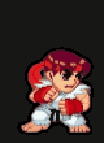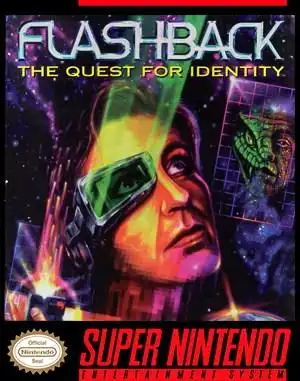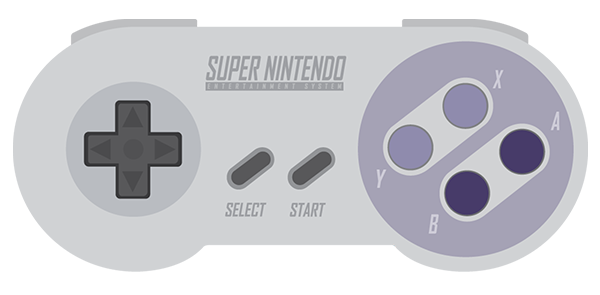Lost on an alien moon with a serious case of amnesia? That's not just a bad dream; it's the starting point for one of the most memorable cinematic platformers of the 16-bit era. While Flashback: The Quest for Identity graced multiple systems back in the early '90s, its arrival on the Super Nintendo brought this sci-fi thriller to a massive audience, leaving a lasting impression on many retro gamers.
Stepping into the shoes of intelligence agent Conrad B. Hart, you're immediately thrust into a mystery. Waking up with no memory on Titan, a colonized moon of Saturn, your only clue is a recorded message from your past self. This message points you towards a conspiracy involving alien infiltrators and a desperate need to regain your identity. The plot unfolds through stylish, rotoscoped cutscenes and environmental storytelling, feeling more like an interactive sci-fi movie than a typical video game of the time.
More Than Just Running and Jumping
Flashback wasn't your average platformer. Inspired by games like Prince of Persia and Another World (also known as Out of This World in North America), it demanded precision and patience. Conrad's movements were fluid but deliberate, utilizing rotoscoped animation that looked incredibly realistic for 1992.
Gameplay involved:
- Precise Platforming: Navigating multi-screen levels required careful jumps, grabs, and climbs. Miss a ledge, and you'd often face a long fall or an untimely encounter with a guard.
- Environmental Puzzles: Progress often hinged on interacting with the environment, using switches, elevators, and later, a handy teleportation device to reach new areas.
- Combat: Armed with a pistol with unlimited ammo (thankfully!), you'd engage in tense firefights, often requiring you to duck behind cover or use a temporary force shield.
- Inventory Management: Using items found or purchased was crucial, adding a layer of depth beyond just movement and combat.
This blend of genres – part platformer, part puzzle game, part action-adventure – gave Flashback a unique identity that set it apart.
The SNES Difference
How did Flashback: The Quest for Identity fare on Nintendo's 16-bit powerhouse? The Super Nintendo version was highly regarded upon release. While the core gameplay and story remained consistent across platforms, the SNES port benefited from:
- Improved Graphics: The SNES hardware allowed for vibrant colors and detailed backgrounds, making the already impressive rotoscoped animation pop even more.
- Enhanced Music and Sound: The audio design on the SNES was generally praised, contributing significantly to the game's atmospheric tension and futuristic vibe.
- Control Adaptation: While some reviewers noted that the controls, requiring precise directional inputs for actions like drawing your weapon or interacting, took some getting used to on the SNES controller, they were generally responsive once mastered.
- Minor Censorship: The North American SNES version, typical for Nintendo at the time, saw some minor censorship compared to other releases, often involving blood or more explicit death animations.
Overall, the Flashback SNES experience was a faithful and visually appealing adaptation that brought this complex, cinematic adventure to a console known for its rich library of diverse titles.
Why Flashback Still Matters
Decades later, Flashback remains a significant title in video game history. It pushed the boundaries of presentation with its rotoscoped graphics and cinematic cutscenes. Its blend of challenging gameplay and intriguing narrative influenced many games that followed. It wasn't just a game; it felt like an experience, a sci-fi film you were actively participating in.
Its success led to sequels like Fade to Black and a more recent follow-up, Flashback 2. The original game itself has seen modern re-releases, a testament to its enduring appeal.
Playing Flashback Today
Feeling that nostalgic itch? Experiencing Flashback: The Quest for Identity SNES is still possible!
- Emulation: The most common way for many retro enthusiasts is through SNES emulation on various devices.
- Modern Ports: The original Flashback has been bundled with Another World for releases on modern consoles and PC (check out GOG.com for a DRM-free PC version). While these might be based on different versions (often the enhanced CD-ROM versions), they offer a legal way to play the core game.
Whichever way you choose to play, be prepared for a challenging but rewarding journey back to 2142.
Flashback: The Quest for Identity SNES FAQ
- What genre is Flashback? It's primarily a cinematic platformer with elements of action-adventure and puzzle-solving.
- Is the SNES version the best? It's subjective! Many loved the SNES port for its improved visuals and sound compared to some earlier versions, though PC and Amiga fans might prefer those originals, and later CD versions added voice acting. The creator, Paul Cuisset, reportedly preferred the Mega Drive/Genesis version. The SNES version is definitely a strong contender and a classic in its own right.
- Is Flashback a difficult game? Yes, Flashback is known for its challenging difficulty, requiring precise movements and strategic thinking to overcome obstacles and enemies.
- Are Flashback and Another World related? They are often mentioned together because they share a similar cinematic platformer style, rotoscoped graphics, and were both groundbreaking games of their time. They were developed by the same studio, Delphine Software.
Flashback on the Super Nintendo delivered a unique, atmospheric, and challenging adventure that stood out in the console's library. It's a game that perfectly captures the ambition and innovation of the early '90s, proving that video games could be both thrilling action experiences and compelling interactive stories. It remains a quest well worth undertaking, even decades later.


